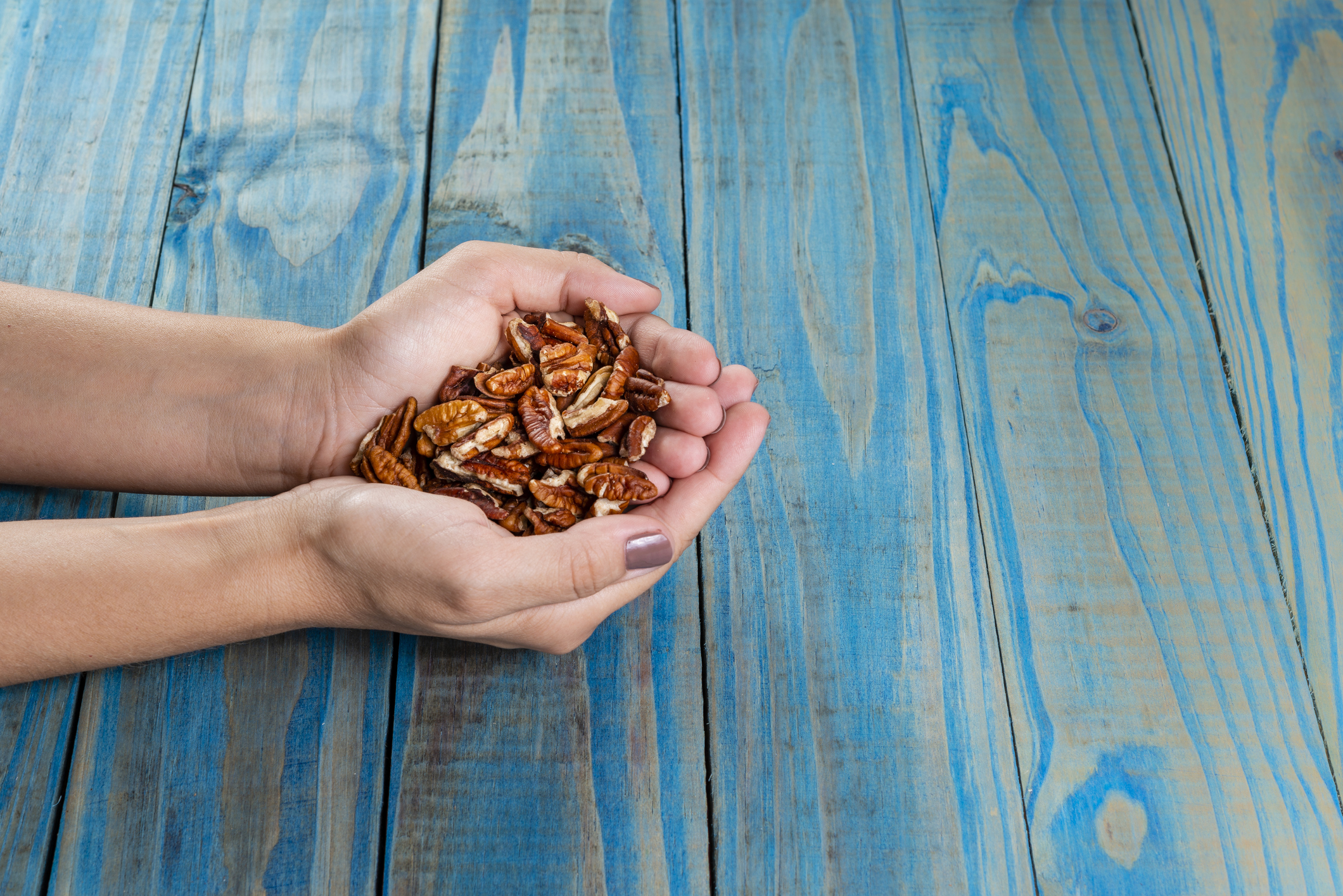

Losing weight, like so many things, gets harder with age, while packing the pounds on seems to get only easier. But not only that, weight gain comes with problems that can really impact our livelihood.
It increases the risk of joint issues like osteoarthritis, breathing problems like asthma and sleep apnea, gallstones and gallbladder disease.
Obesity can also lead to heart disease, stroke, type 2 diabetes, more than a dozen types of cancer and premature death.
Diet and exercise (or lack thereof) play a role in weight gain. But so do hormones, so any tip to make things just a little easier is golden, right?
Well, I have one for you that could help make fighting obesity as simple as adding this newly designated superfood to your diet…
Pecans slay pesky pounds
A team of researchers from the United States and Mexico applied whole pecans, a pecan polyphenol extract and high-fat diets to mice models to see what impact they might have on the development of metabolic abnormalities.
According to the results, supplementing a high-fat diet with whole pecans or a pecan polyphenol extract
- Reduced fat mass by 44 percent and serum cholesterol by 40 percent;
- Enhanced glucose tolerance by 37 percent, prevented the enlargement of pancreatic islet cells;
- And increased oxygen consumption by 27 percent!
How do pecans work their magic?
The researchers found these beneficial effects were connected with increased activity of brown adipose tissue, a type of fat that actually burns calories, as well as mitochondrial oxidative metabolism in the liver and skeletal muscle.
And there’s more…
The researchers also observed anti-inflammatory properties in pecans. The mice fed pecans or pecan polyphenol extract showed a reduction in low-grade inflammation, which can lead to chronic inflammation and subsequent inflammation-related diseases.
Dr. Luis Cisneros-Zevallos, a professor at the Texas A&M College of Agriculture and Life Sciences and affiliate scientist in the Institute for Advancing Health Through Agriculture, says the results show pecans maintain body weight and prevent diabetes despite consuming a high-fat diet.
“Obesity and diabetes numbers are increasing in modern society worldwide, and the trend in high fat diet consumption is one of the main reasons besides lifestyle and genetic predisposition,” Cisneros-Zevallos says. “People are searching for healthier options, and we have now shown pecans are a healthy tool consumers have in their hands.”
Due to this new functionality, the researchers indicate pecans can be designated a superfood that can be consumed directly or utilized as a functional food or dietary supplement.
The power of pecans
We often think of pecans as a holiday food. But given how healthy they are, they should be seen as a year-round treat.
For one thing, pecans are loaded with monounsaturated fats, which help reduce the risk of heart disease and type 2 diabetes. A previous study found that eating pecans lowered levels of both total cholesterol and LDL (the “bad” type of cholesterol) 10 percent more than a diet specifically designed to reduce cholesterol. And a second study showed that adding pecans to participants’ daily diet lowered cholesterol more effectively than exercise.
The minerals found in pecans help maintain and improve cognitive function. Pecans also contain antioxidants like flavonoids that help control the free radical damage that can lead to inflammation. And they’re a great source of copper and manganese, two hard-to-get trace minerals essential for bone health.
Pecans contain fiber, which contributes to good digestion, a healthy weight and improved blood sugar levels. Plus, pecans contain vitamin A, which protects the skin from premature aging, and zinc and vitamin E, which help keep skin clear.
Given all these benefits, plus their potential to combat obesity, it makes sense to add pecans to your daily diet. But be careful — because of their high fat and carbohydrate content, pecans have a lot of calories. A one-ounce serving of pecans (roughly ¼ cup) contains about 201 calories.
To maintain a healthy diet, you’ll want to limit your intake to a small handful or two of plain, unsalted pecans a day. Even better, use that small handful or two to replace any less-healthy calorie-heavy snacks you find yourself eating too often.
Sources:
Pecans give obesity and diabetes a slim chance — EurekAlert!
Pecans and Its Polyphenols Prevent Obesity, Hepatic Steatosis and Diabetes by Reducing Dysbiosis, Inflammation, and Increasing Energy Expenditure in Mice Fed a High-Fat Diet — Nutrients
Childhood Obesity Facts — Centers for Disease Control and Prevention
Nuts and your heart: Eating nuts for heart health — Mayo Clinic

